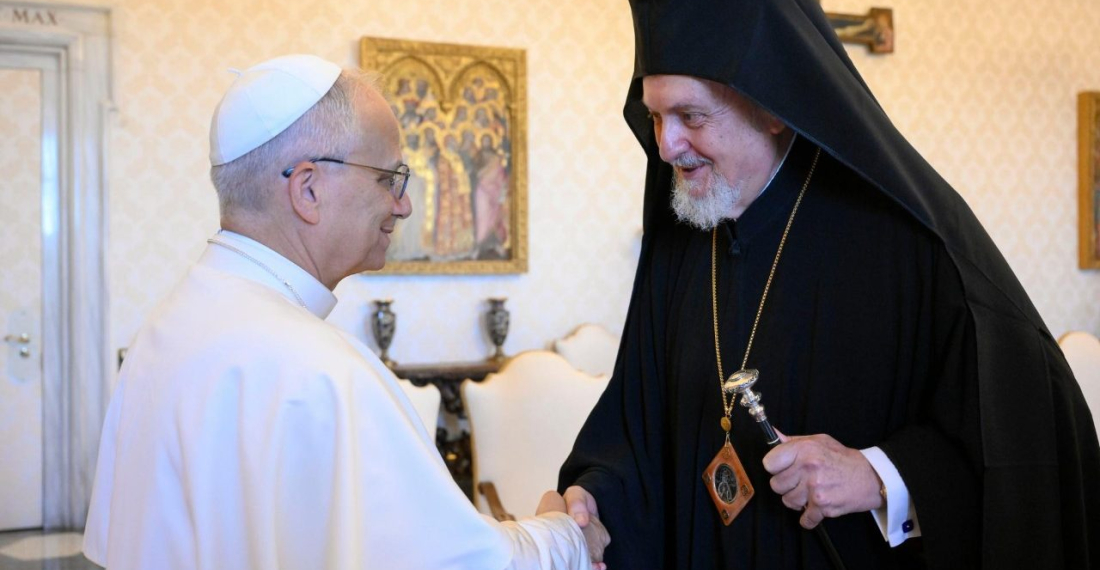In a meeting with a delegation from the Ecumenical Patriarchate of Constantinople, Pope Leo XIV on Saturday reaffirmed the Catholic Church’s commitment to the path of reconciliation and unity with the Orthodox Church.
During the audience that marked the first such encounter since the beginning of his pontificate, he reflected on the “profound communion already existing between us,” and noted that the traditional exchange of delegations for the respective feasts of the Apostles Peter and Andrew is “a reflection of the fraternal bond that united the Apostles Peter and Andrew.
Tracing the steps of rapprochement between Rome and Constantinople, Pope Leo recalled with gratitude the “courageous and farsighted” efforts of Pope Paul VI and Ecumenical Patriarch Athenagoras, whose historic meeting in 1964 set the foundations for modern ecumenical dialogue. He noted that their successors have “pursued with conviction the same path of reconciliation,” highlighting in particular the presence of Ecumenical Patriarch Bartholomew at the funeral of Pope Francis and again at the Mass inaugurating his own pontificate.
“I assure you of my desire to persevere in the effort to restore full visible communion between our Churches,” he said, and he underlined that such unity “can only come about, with God’s help, through a continued commitment to respectful listening and fraternal dialogue.”
Pope Leo expressed his openness to ideas and collaboration, stating: “I am open to any suggestions that you may offer in this regard, always in consultation with my brother Bishops of the Catholic Church who… share with me the responsibility for the complete and visible unity of the Church.”
Concluding his address, the Pope offered heartfelt thanks for the delegation’s presence in Rome and asked them to convey his greetings and gratitude to Patriarch Bartholomew and the Holy Synod.
source: commonspace.eu with Radio Vaticana (Vatican City).
photo: Pope Leo XIV with the delegation of the Orthodox Patriarchate of Constantinople on 28 June 2025 (picture courtesy of Radio Vaticana, Vatican City)






